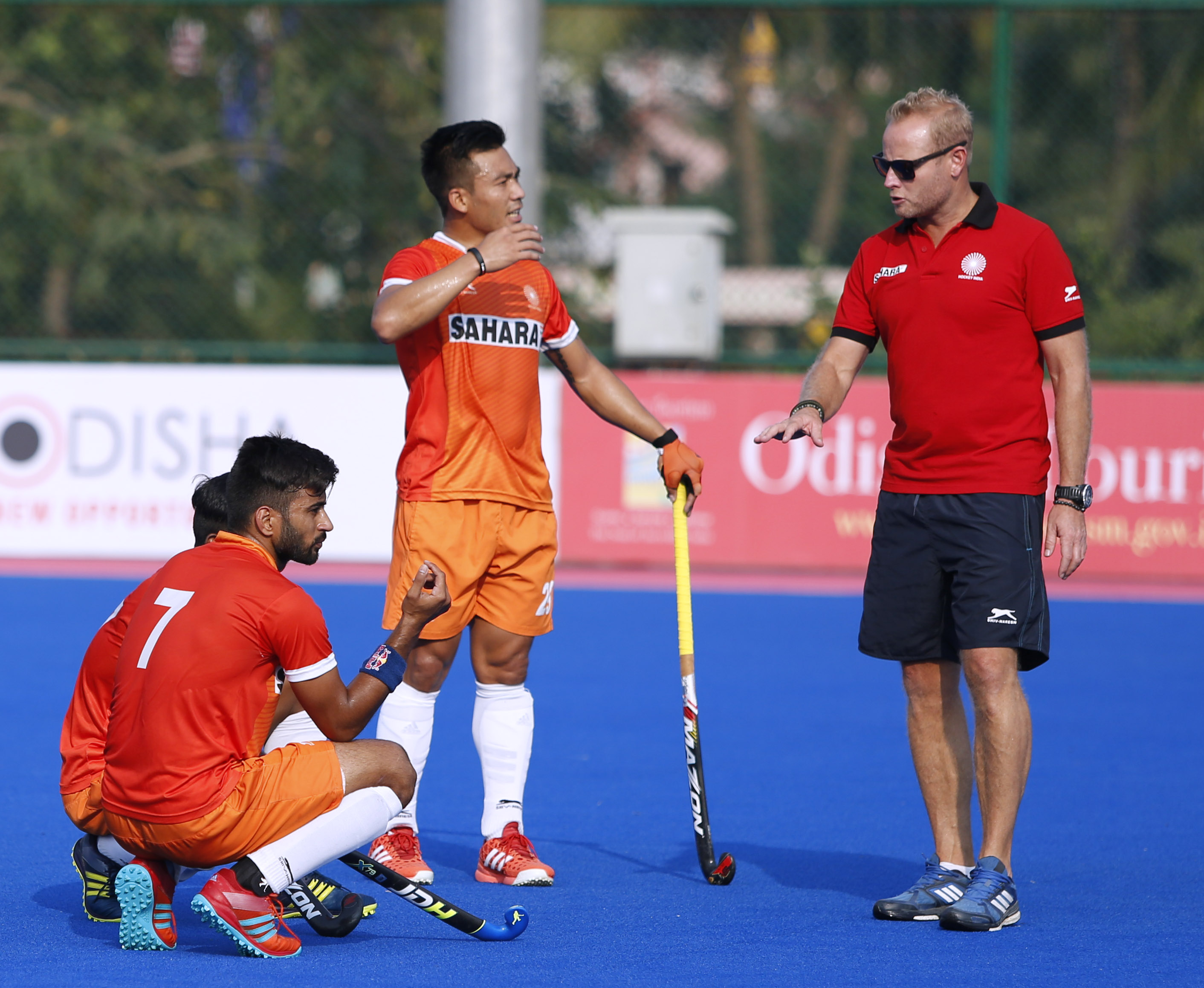Share
The double leg 4-Nations Cup is about to be over. Like the first leg in Tauranga City, top-ranked Belgium and India will again clash in the final in Hamilton on Sunday. The hosts and another Asian outfit there apart from India, the talented Japanese will fight it out for bronze again. Double leg and double final seems to be a good idea.
Last ten days have witnessed some breathtaking hockey. No team seemed to a light weight. Japan, ranked less than others did not go down meekly though started losing to India on a heavy score. They almost sprung a surprise against all their rivals, which is a good augury for Asia.
Japan made the hosts sweat a lot in front of their home crowd when it struck twice in ten minutes to equalize 3-3, and then 4-4, only to lose the bronze by an odd goal (5-4).
Japan also pushed other two teams Belgium and India to the wall in the second half though it was on backfoot in the first. In Hamilton, Japan breathed life into the game against Belgium after conceding three goals in the first half. But it did not allow further leeway for the World No.3 team instead struck a brace.
The same spirit was there against India. Japan has forgotten the first leg rout (0-6) and fought valiantly to draw India 2-2 and then when was presented with a bright chance to force an upset, it missed out on a stroke. That India struck twice in a minute, 58th to the be specific, and maintained their clean slate in Hamilton is not the kind of story the Asian superpower would like to unleash in every contest. Japan were distinctly unlucky in the dying moments. However, Japan proved they are not push overs, team to watch out in the crucial 2018.
New Zealand started their campaign surprising Belgium (5-4), but could not maintain the tempo after that. When it conceded four goals a week later to the same rival, its an anticlimax of sort.
14 matches held till Saturday produced 80 goals. This kind of per-match goal average is encouraging. And also entertaining. Field goals dominated the first leg, while teams shifted the gear to penalty corners in the next. It seems. Off the 37 goals that the second leg pool matches produced 19 penalty corner goals, one more than field goal tally. This kind of PC more than FG is a rare phenomenon.
Its obvious every team in the tournament came all the way to New Zealand not just to win the tournament, but essentially to experiment. Its commonplace in a World Cup year.
Thankfully, the experiment part did not hamper entertainment part. With so many goals, each match stood out distinctly. Most matches were equally fought which is also amply reflected in the scorelines. The teams that dominated in the first leg were almost stretched to limit in the other leg.
As for India, which gave senior colours to four juniors, things fell the way it was designed. The way India struck last minute goals, inspire. It seems the Indian team showed glimpses of being at top, extricating themselves in tight matches: against Belgium and Japan in Hamilton.
India is traditionally seen to be conceding goals at dying moments and the role reversal in Hamilton should not be lost sight of.
Two veterans, Rupinder Pal Singh and Goalie PR Sreejesh, returned to the side after a fairly long hiatus. Both proved their worth.
Chief coach Sjoerd Marinje took some bold steps in using his wards. And, provided godsend chance to new comers and strugglers. They needed this, and got from Marinje. India defeated Belgium 5-4 when Manpreet Singh was rested. With six more midfielders at his disposal, the coach saw to it the absence of Manpreet did not affect the team against fancied Belgium. Manpreet was not played in three out of seven matches. Harjeet Singh got amble chances to match Manpreet.
Except Simranjeet Singh, who seemed to be injured, every other player got enough time on the field, sometimes at the cost of experienced seniors. Still the team did fare successfully. India has just lost two matches, both in first leg, both to Belgium. After the 5-4 victory, Indian tails is up.
Its clever move to see Rupinder Pal not playing against Belgium in the first leg, Manpreet in the second leg. Chenglensana Singh led Indian team must have learnt a lot to handle the situation without one leading player not in the ranks.
The good news is that, come what may on Sunday, Indian experiments did not affect its match results. The story is same for other teams too.
This way this kind of competitive format is welcome against test series and other kinds.



